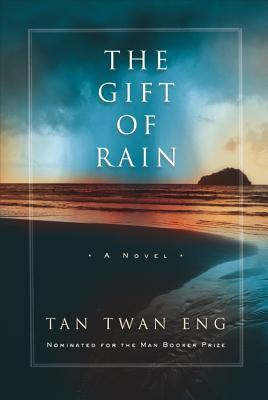More on this book
Community
Kindle Notes & Highlights
“These principles apply to your daily life as well. Never meet a person’s anger directly. Deflect, distract him, even agree with him. Unbalance his mind, and you can lead him anywhere you want.”
“The great human capacity for choosing not to see,” he said. “It makes life easier,” I said.
It was only just starting to occur to me what a strange place I had grown up in—a Malayan country ruled by the British, with strong Chinese, Indian, and Siamese influences. Within the island I could move from world to world merely by crossing a street. From Bangkok Lane I could walk to Burmah Road and Moulmein Road, down Armenian Street, then to the Indian areas of Chowrasta Market; from there I could enter the Malay quarters around Kapitan Kling Mosque, then to the Chinese sections of Kimberley Road, Chulia Lane, and Campbell Street. One could easily lose one’s identity and acquire another
...more
To have memories, happy or sorrowful, is a blessing, for it shows we have lived our lives without reservation.
do. We all miss our homes. I am certain you miss your family and the women who are waiting for your return,” Endo-san said and I heard a low note of sadness in his words. “But we have our duty. If we fail in our duty, we fail our country, and our family.” He looked firmly at me as he said this, as though hoping that, some day, I would understand.
The Japanese people held duty in high esteem, I had learned, but to see it impose its unbending burden on the most timeless of human needs made me question the value of it.
And duty?” His voice turned bitter. “Duty is a concept created by emperors and generals to deceive us into performing their will. Be wary when duty speaks, for it often masks the voice of others. Others who do not have your interests at heart.”
“The problem is,” he said, “some mistakes can be so great, so grievous, that we end up paying for them again and again, until eventually all our lives forget why we began paying in the first place. If you’re able to remember, then you must make the greatest effort to put things right, now, before you forget again.”
From that moment, he began to treat me more as an equal, although I sensed that he held back as though he did not want to repeat a mistake made in his earlier life.
Years later, after the war, I found in his room a sealed bottle of the Burberry’s after-shave he had used and twisted it open. The smell of it, so sudden, so unexpected, made me drop the bottle. It fell to the floor and the contents spilled out, darkening the floorboards. And, for a moment, I thought my father was with me again.
His gentle words had unsettled me and told me I had hurt him all these years. He had always been an intensely private man and it had taken a great amount of surrender from him to let me know the details of my conception. Like the best of fathers he had endured my callousness with dignity and silence, and I could only sit down, close the book, and think of ways to make it up to him.
What made it worse was that we could never truly share such burdens with even those closest to us. In the end, the mistakes were our own, the consequences to be borne by us alone.
the great human capacity for choosing not to see.
And I realized then that there was an emotion worse even than the sharpest fear; it was the dull feeling of hopelessness, the inability to do anything.
I had loaded another weight onto his suffering and it hurt me to understand that while one person can never really share the pain of another, they can so easily and so heedlessly add to it.
make your own decisions. Do not let your ties to the past—or fear of the future—direct the course of your life,
Thus, on the day of my death, I can walk out with my head held high, secure in the knowledge that none of my children—not one—ever took the easy road; that they strove to keep sanity, reason, and compassion alive and burning in these tragic times.
We have done the right thing and I know that History will judge us fairly and kindly.
My son, grieve if you must but not for too long. I fear for you and the burdens imposed on you by your duty. In the last fragments of my life I truly wish, in spite of my Christian faith, to believe that we will all live again and again so that I may be blessed, perhaps in some future life on the far side of a new morning, to meet you again and to tell you how much I love you.
“That is what growing old consists of, mostly. One starts giving away items and belongings until only the memories are left. In the end, what else do we really require?” I examined her words carefully, and the answer came slowly but without any equivocation. “Someone to share those memories with,”
This knowledge, like all great and worthwhile enlightenment relating to the human condition, was bittersweet and came too late.
Do you know the poem about the two roads, and the one not taken?” “Yes. That has always amused me, because who created the two roads in the first place?”
“I am not here to judge you. I am not here to condemn you, or to forgive you. I have no such right. No one has.” It was now her turn to hold my hand. “I am here because I once loved a man, and I never stopped loving him, that is all,” she said.


